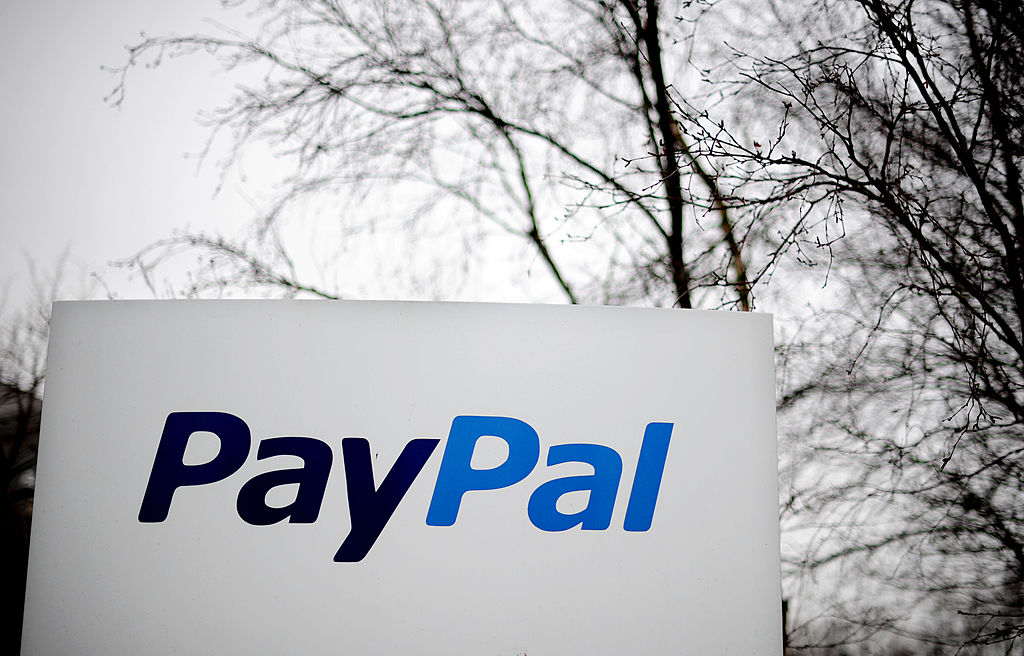PayPal pledges support to VMware over OpenStack claims
Online payment provider claims virtualisation giant still has a home on its servers.

Online payment provider PayPal has stressed that VMware still has a role to play in its IT infrastructure, following reports that it plans to pull the software from 80,000 of its servers.
PayPal is planning to replace VMware with an open source alternative from OpenStack across thousands of its servers, according to a report on Business Insider recently.
OpenStack is essentially a coalition of tech vendors and developers from across the world who have pooled resources to create open source software that can be used to build private and public clouds.
The article quotes Boris Renski, an OpenStack Foundation board member, who claimed his consultancy firm Mirantis is working with PayPal on the server software swap.
To begin with, PayPal will start removing VMware's software from 10,000 servers that are set to go live this summer, he claimed.
"The grand vision for the project is, over time, they will replace all of the virtual infrastructure with OpenStack, not just PayPal, but PayPal and eBay together," Renski said.
However, Mirantis CEO Adrian Ionel has since played down his comments, claiming Renski has "exaggerated the use case" of OpenStack at PayPal and that his knowledge of the work being done there is "limited" and "second hand".
Get the ITPro daily newsletter
Sign up today and you will receive a free copy of our Future Focus 2025 report - the leading guidance on AI, cybersecurity and other IT challenges as per 700+ senior executives
In a statement to IT Pro, a PayPal spokesperson reiterated its commitment to the VMware brand.
"VMware provides important technologies for PayPal's platform. However, we do leverage a few cloud technologies, including OpenStack, VMware and Red Hat so that we can architect our infrastructure to enable choice and deliver agility for our business," the company statement read.
IT Pro contacted VMware for comment on this story and was still awaiting a response at the time of publication.
-
 Cleo attack victim list grows as Hertz confirms customer data stolen
Cleo attack victim list grows as Hertz confirms customer data stolenNews Hertz has confirmed it suffered a data breach as a result of the Cleo zero-day vulnerability in late 2024, with the car rental giant warning that customer data was stolen.
By Ross Kelly
-
 Lateral moves in tech: Why leaders should support employee mobility
Lateral moves in tech: Why leaders should support employee mobilityIn-depth Encouraging staff to switch roles can have long-term benefits for skills in the tech sector
By Keri Allan
-
 How simplicity benefits the IT partner ecosystem
How simplicity benefits the IT partner ecosystemSponsored Content Across private cloud and AI adoption, simple approaches can unlock more time and money for IT teams
By ITPro
-
 A focused shift to partner-delivered services generates new opportunities with Broadcom
A focused shift to partner-delivered services generates new opportunities with BroadcomSponsored Content Broadcom is investing in professional services — delivered through partners — for long-term customer success
By ITPro
-
 VCF: The key to cloud success now and in the future
VCF: The key to cloud success now and in the futureSponsored Content Private cloud offers the security and scalability that modern enterprises require
By ITPro
-
 Moving Broadcom VMware licenses to subscription-based models
Moving Broadcom VMware licenses to subscription-based modelsSponsored Content With a committed channel, Broadcom makes the journey to subscription-based VMware licenses as smooth as possible
By ITPro
-
 VMware needs to win back trust – and VMware Explore Barcelona 2024 is its chance to do so
VMware needs to win back trust – and VMware Explore Barcelona 2024 is its chance to do soAnalysis After a year of heavily criticized messaging, VMware will need to hit reset and prove it can meet customer needs and demands
By George Fitzmaurice
-
 Why Broadcom is offloading VMware’s end user computing division
Why Broadcom is offloading VMware’s end user computing divisionNews Broadcom’s decision to sell the division marks the latest in a string of sales and product cuts since the VMware acquisition cleared
By George Fitzmaurice
-
 Once again, PayPal starts the year with another round of job cuts
Once again, PayPal starts the year with another round of job cutsNews The payments firm reveals 200 employees will lose their jobs, 11 months after the closure of its Dundalk office
By Emma Woollacott
-
 VMware’s vision solidifies with Broadcom’s reassurance
VMware’s vision solidifies with Broadcom’s reassuranceAnalysis With Broadcom’s acquisition of VMware now complete, customers can breathe a sigh of relief
By Rory Bathgate